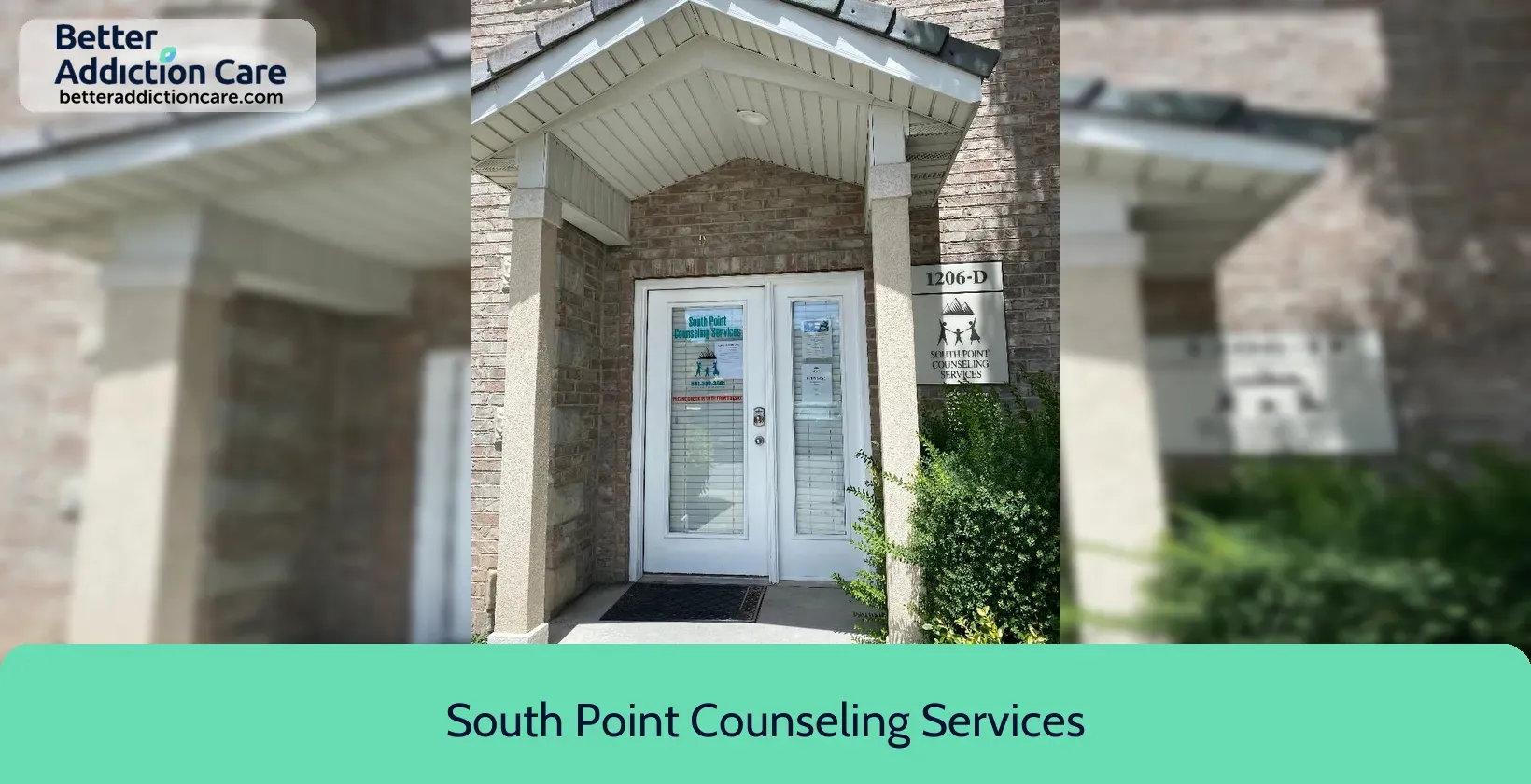South Point Counseling Services
Overview
South Point Counseling Services is a substance abuse treatment center for people seeking treatment near Salt Lake County. As part of their treatment modalities for recovery, South Point Counseling Services provides 12-step facilitation, group counseling, and rational behavior therapy during treatment. South Point Counseling Services is located in South Jordan, Utah, accepting medicaid for treatment.
South Point Counseling Services at a Glance
Payment Options
- Medicaid
- Private health insurance
- Cash or self-payment
- State-financed health insurance plan other than Medicaid
- Medicare
Assessments
- Comprehensive mental health assessment
- Comprehensive substance use assessment
- Screening for tobacco use
- Outreach to persons in the community
- Screening for mental disorders
Age Groups
- Adults
- Children/adolescents
- Young adults
- Seniors or older adults
- Adolescents
Ancillary Services
- Case management service
- Court-ordered outpatient treatment
- Diet and exercise counseling
- Education services
- Family psychoeducation
Highlights About South Point Counseling Services
7.32/10
With an overall rating of 7.32/10, this facility has following balanced range of services. Alcohol Rehabilitation: 8.31/10, Drug Rehab and Detox: 6.00/10, Insurance and Payments: 6.67/10, Treatment Options: 8.30/10.-
Alcohol Rehabilitation 8.31
-
Treatment Options 8.30
-
Insurance and Payments 6.67
-
Drug Rehab and Detox 6.00
Accreditations
State mental health department:
State mental health department accreditation refers to the process of evaluating and certifying the quality and standards of a state's mental health department, ensuring that it provides high-quality services and meets specific criteria for mental health care. The accreditation process is performed by a third-party organization and helps to improve the overall care and treatment of individuals with mental health conditions.
Federally Qualified Health Center:
Federally Qualified Health Center (FQHC) accreditation is a process of evaluation and recognition by the federal government for community health centers that provide comprehensive and accessible healthcare services to underserved populations. FQHC accreditation is essential for centers to receive federal funding and to ensure that they meet standards for quality, patient-centered care.
Treatment At South Point Counseling Services
Treatment Conditions
- Mental health treatment
- Alcoholism
- Opioid Addiction
- Substance use treatment
- Co-occurring Disorders
Care Levels
- Intensive outpatient treatment
- Detoxification
- Outpatient
- Hospital inpatient treatment
- Regular outpatient treatment
Treatment Modalities
- 12-step facilitation
- Group counseling
- Rational Behavior Therapy
- Trauma-related counseling
- Individual psychotherapy
Ancillary Services
Languages
- Spanish
- Sign language services for the deaf and hard of hearing
- Other languages (excluding Spanish)
- Portuguese
Special Programs
- Clients with HIV or AIDS
- Pregnant/postpartum women
- Clients who have experienced trauma
- Clients with co-occurring mental and substance use disorders
- Veterans
Contact Information
Read our Most Recent Article About Drug Addiction
DISCLAIMER: The facility name, logo and brand are the property and registered trademarks of South Point Counseling Services, and are being used for identification and informational purposes only. Use of these names, logos and brands shall not imply endorsement. BetterAddictionCare.com is not affiliated with or sponsored by South Point Counseling Services.









